From Sialkot to Sugar Land: Tracing Devinder Mahajan’s path of service
He was 12 when the Partition happened and his family, like millions of others, was forced to flee their home with virtually nothing.
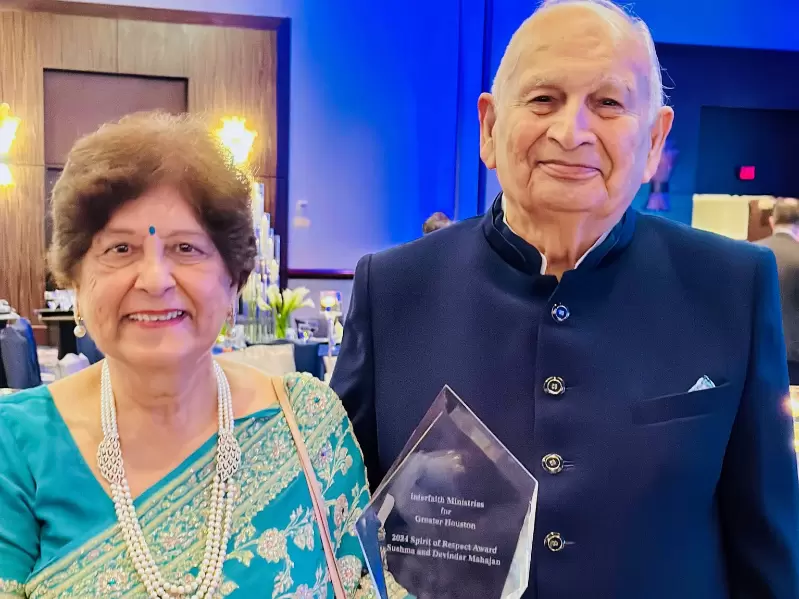 Dr. Dev and Dr. Sushma Mahajan, longtime pillars of Houston’s Hindu community, continued their charitable work in retirement, with Dev ji lending his engineering expertise to projects including Arya Samaj, the Eternal Gandhi Museum, and the Texas Hindu Campsite. / Courtesy Photo
Dr. Dev and Dr. Sushma Mahajan, longtime pillars of Houston’s Hindu community, continued their charitable work in retirement, with Dev ji lending his engineering expertise to projects including Arya Samaj, the Eternal Gandhi Museum, and the Texas Hindu Campsite. / Courtesy Photo
When Dr. Devinder Mahajan speaks about his life, he begins not in Houston, where he is widely regarded as one of the pillars of the Hindu Indian community, but in the places he left behind as a child: Sialkot and Multan, which are now in Pakistan. His family’s story — marked by dislocation during Partition, rebuilding from nothing, and a lifelong commitment to service — forms the foundation of the legacy he has built in Houston.
Now in his eighties, Dev ji is soft-spoken, measured, and reflective.
“If it had not been for Partition,” he says, “I don't think I would have come to United States.”
His earliest memories include meeting Madhav Sadashivrao Golwalkar, the second Sarsanghchalak of the Rashtriya Swayamsevak Sangh (RSS).
“I was at that time maybe 10 and my younger brother was eight years old,” Dev ji said. “And we both went to Multan, where Guruji had come to visit. And that's the exposure we had. We had also some training in official camp. But we were regular attendees of shaka in Vehari district of Multan.”
He was 12 when the Partition happened and his family, like millions of others, was forced to flee their home with virtually nothing.
“In 1947 when India got Independence, it unfortunately forced my father to drop everything and move to India,” he said. “All of a sudden, from a big businessman, he became literally homeless, and he had to then start all over again when we moved to India.”
They resettled in Batala, Punjab, where the boy excelled academically, eventually pursuing engineering as per his father’s wishes.
After Gandhi’s assassination, the RSS was blamed, and Dev ji’s father — like many swayamsevaks — was arrested and jailed for a time before eventually being released. These were formative events.
Coming to America
In 1960, young Devinder came to the United States to study at the University of Michigan in Ann Arbor. He had already completed two years of engineering studies in India, but unlike the British-style system India followed, the American education system allowed him to transfer his credits, ensuring his hard work would not go to waste. He fast-tracked through college, eager to start earning as soon as possible.
Like many immigrants of his generation, Devinder found success through sheer grit, hard work, and an unwavering willingness to show up. His first job — an engineering role in Cleveland — was its own obstacle course. He woke up at 5 a.m. to make the trip, only to be rejected once the employers realized he was a foreign student on a visa. Dev ji, unfazed, asked them why they hadn’t stated they did not want to hire someone on a student visa. He then calmly explained his situation, outlined what hiring a foreign student required, and presented his grades. Impressed by his clarity and confidence, they offered him the job.
He knew almost nothing about America at the time, not even that biscuits were called cookies, but he met each challenge with the same determination that would define his career and community work for decades to come.
Working through college, one of the many early Indian immigrants who built careers quietly, steadily, without fanfare, he went on to become a successful engineer. He married his wife Sushma, a physician, and the family moved to Houston in 1975. Today, the couple has two daughters, both married, and five grandchildren.
“My father was more popular than we were.”
But even as Dev ji built a life in America, his connection to the RSS and the Hindu reformist tradition of Arya Samaj remained strong. When asked how Arya Samaj of Greater Houston began, Dev ji traces it back again to his father.
ASGH, located on Schiller Road, is today an important cultural and spiritual anchor for the area’s Indian community. It hosts weekly gatherings, educational programs, and community events aimed at passing Hindu values to the next generation. In the foyer hangs a garlanded photograph of Dev ji’s father, honoring the man who laid the foundation for the organization.
Dev ji’s father, R.C. Mahajan, arrived in the United States in 1979 and made it his life’s mission to connect with Houston’s then-tiny Hindu community. He visited families, spoke to them and their children about Hindu values shaped through the RSS, and conducted havans. “Everybody in town called him Pita ji… my father was more popular than we were,” Dev ji said with a laugh, noting that he himself was busy building his engineering career and raising a family at the time.
In July 1991, R.C. Mahajan founded Arya Samaj in a space provided by businessman Sunil Mehta, who offered several rooms at his Highway 6 facility for the first gatherings. Construction began on the Schiller Road location in 1997, and over the years it slowly grew into the multibuilding 27,000-square-foot campus seen today, with classrooms, play areas and community spaces.
It is home to the DAV Montessori School, whose students have won multiple state-level awards. The school offers classes up to fifth grade and integrates Hindu values into its curriculum.
A community formed through patient dedication
Dev ji invites people to see ASGH firsthand, not simply as a religious institution but as a living community space. “Come to a Sunday program,” he suggested during our conversation. “You will see children learning, families gathered, elders sharing knowledge.” He believes that Arya Samaj’s blend of education, culture, and community service has been crucial in helping generations of Indian American families maintain a connection to their heritage while adapting to life in the U.S.
His own involvement with the RSS continued after coming to America, though in a more community-oriented form. He has watched the Hindu community in Houston evolve from a few dozen families in the 1960s to one of the largest and most vibrant in the country. Through those decades, he has advised, supported, and mentored countless organizations and leaders, often quietly, behind the scenes.
The article you are reading is part of a broader series highlighting influential members of the Hindu community in Houston, particularly those whose early lives were shaped by the RSS.
For Houston’s Hindu population, the institutions that define their religious and cultural lives did not materialize overnight. They were built through years of quiet effort by people like Dev Mahajan, immigrants who carried fragments of an interrupted homeland and reshaped them into something lasting for the next generation.
Dev ji retired in 1999, and his wife retired in 2000. They had planned to travel, play tennis, and pursue real estate, but aside from travel, retirement took a different turn. Dev ji became deeply involved with the Arya Samaj, and his engineering and construction background proved invaluable not only to ASGH but also in the development of the Eternal Gandhi Museum and the Texas Hindu Campsite.
If health permits, he hopes to complete the Patanjali Wellness Center, with construction expected to begin early next year. The couple has made significant financial contributions to each of these projects.
Dev ji also proudly served as the founding chairman of the HGH Board of Advisors for 10 years.
ADVERTISEMENT
ADVERTISEMENT
E Paper
Video



1749580004.png) Juhi Varma
Juhi Varma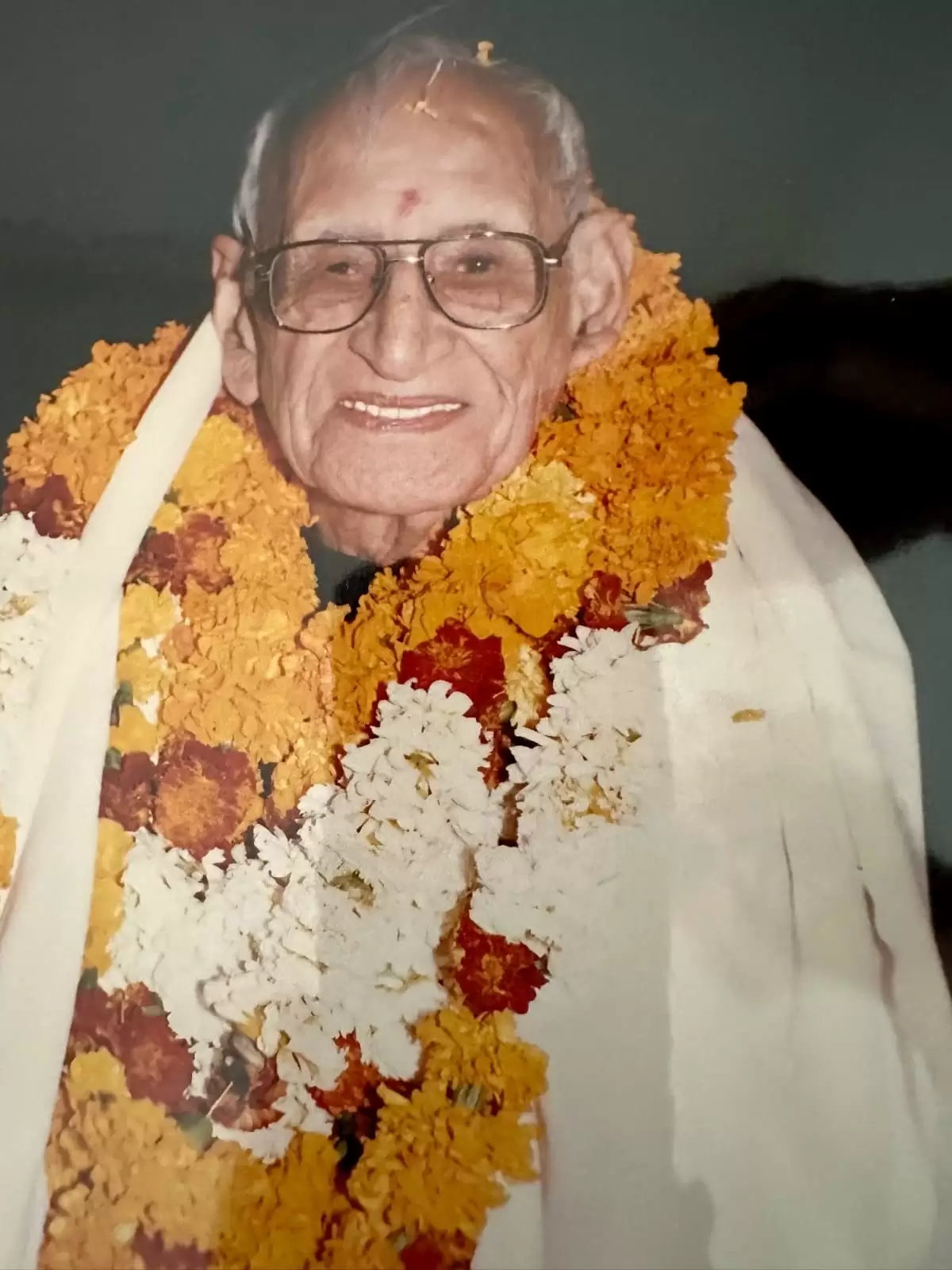
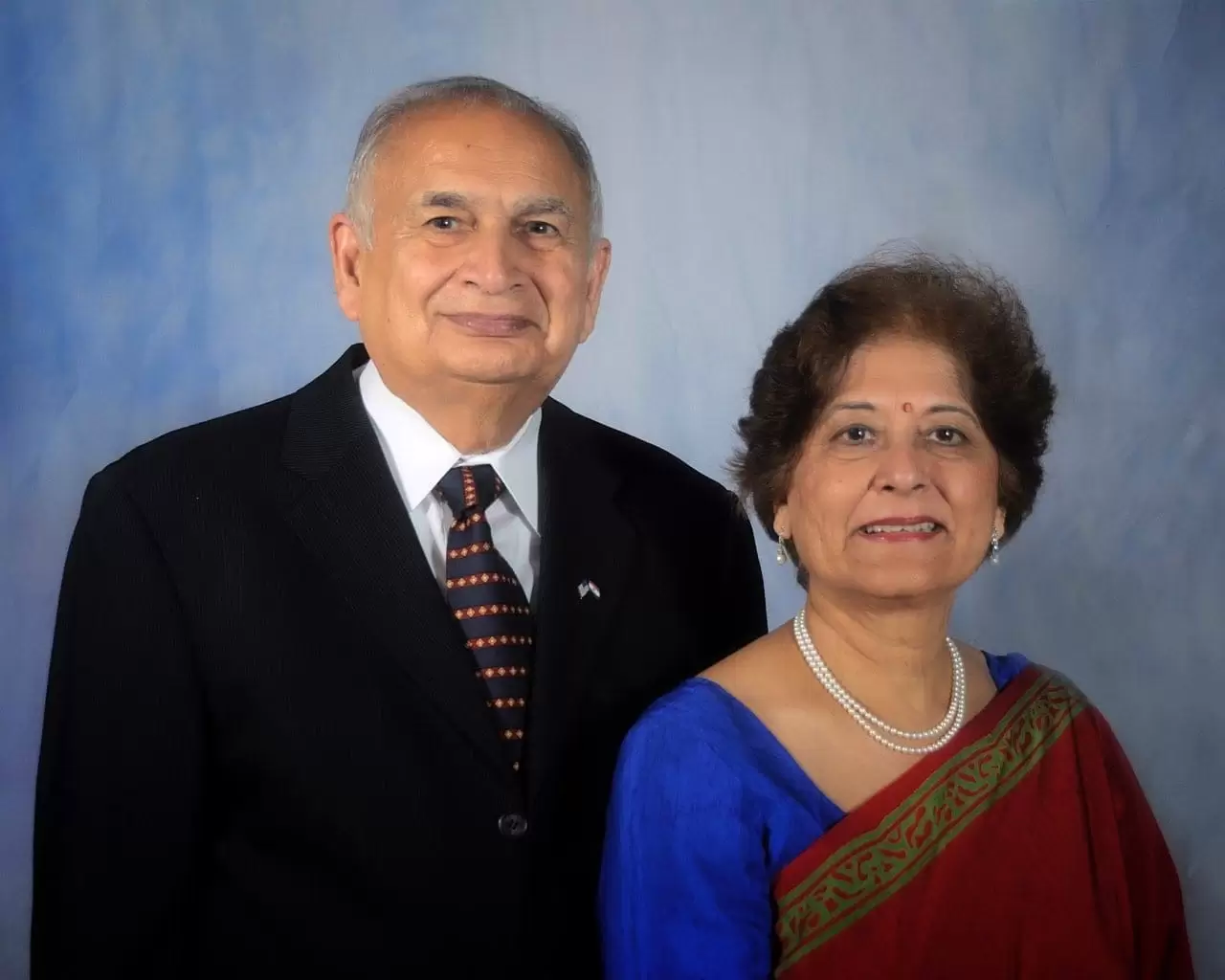
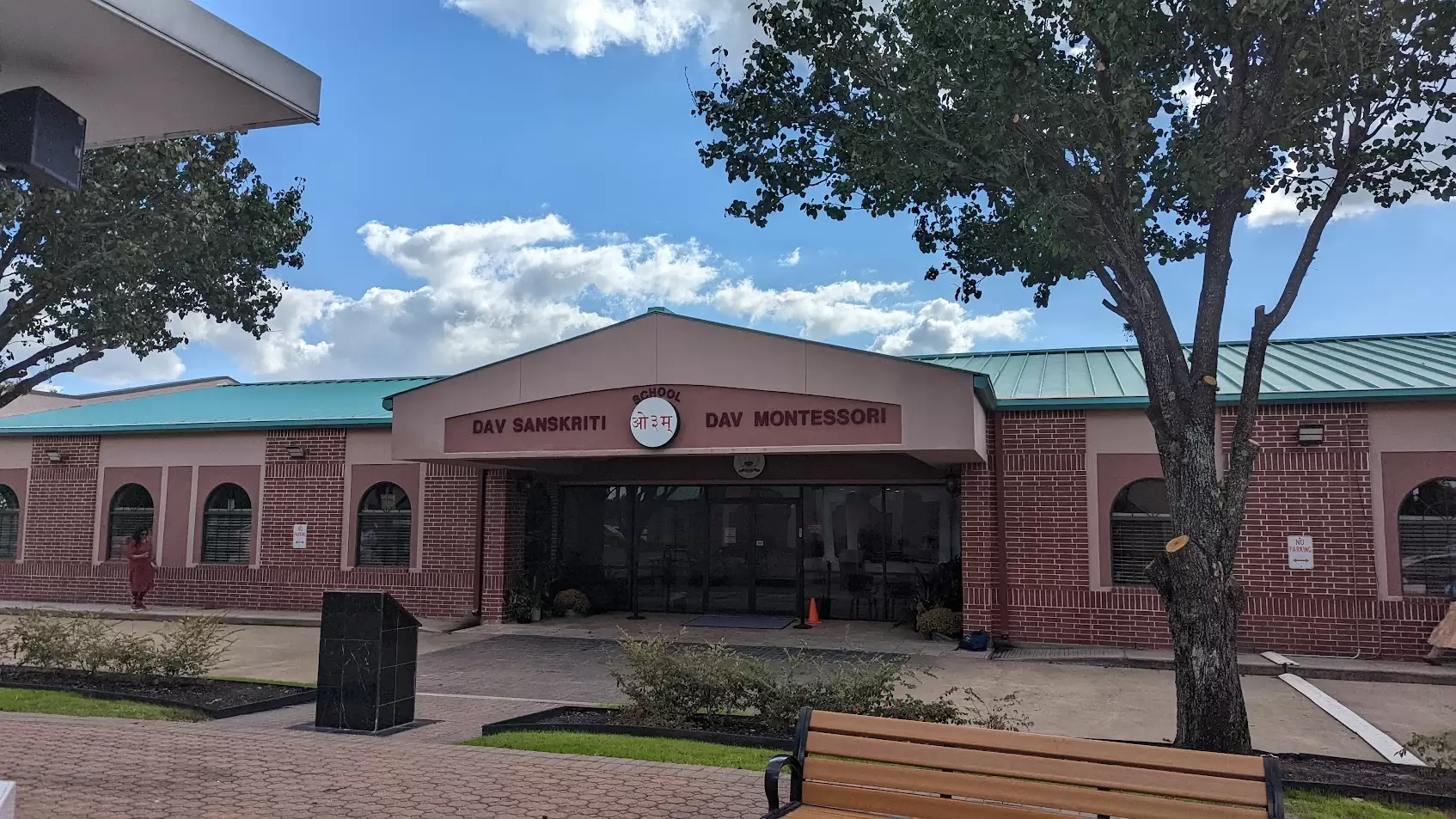
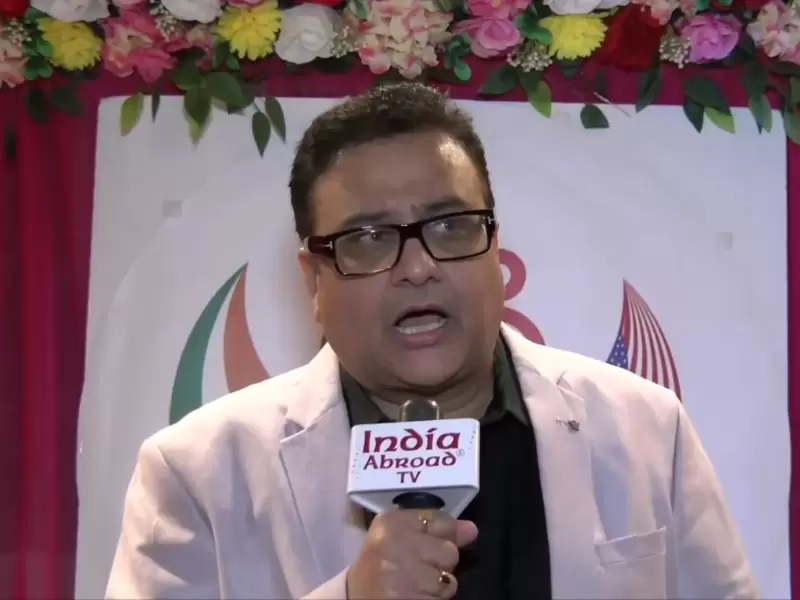








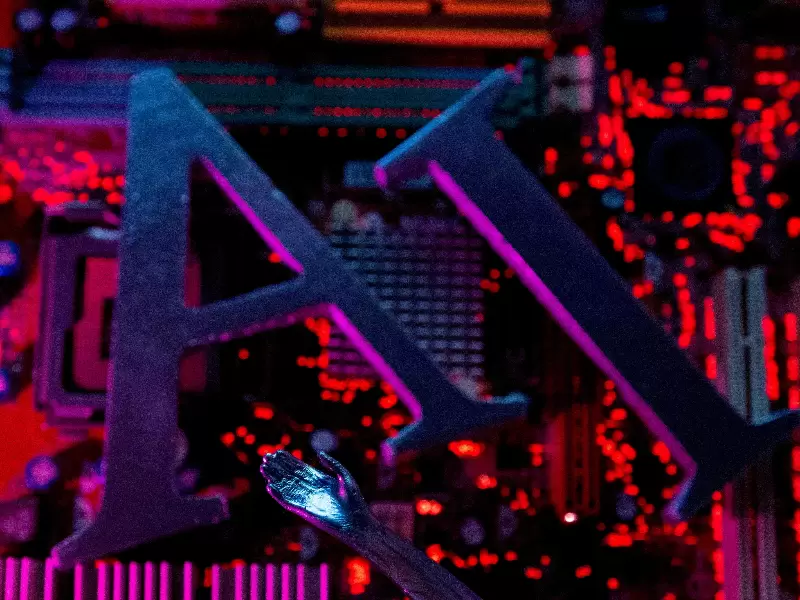
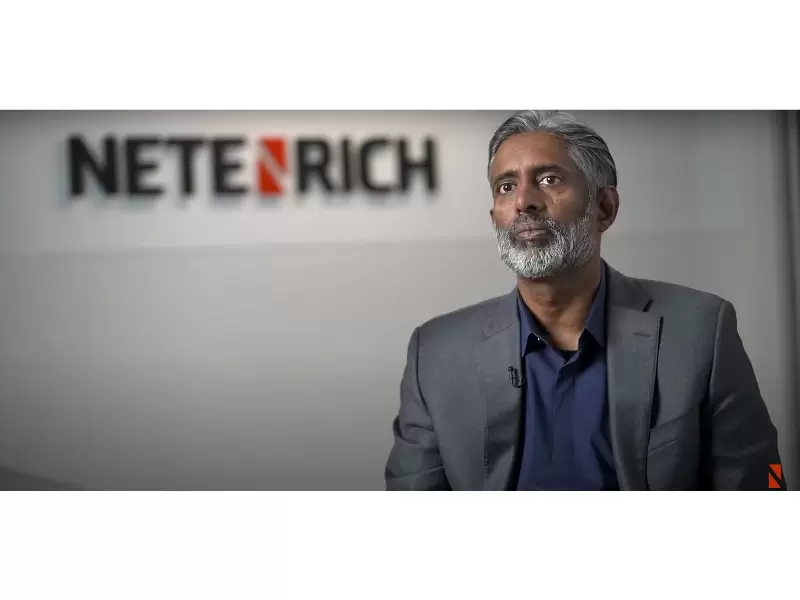

Comments
Start the conversation
Become a member of New India Abroad to start commenting.
Sign Up Now
Already have an account? Login